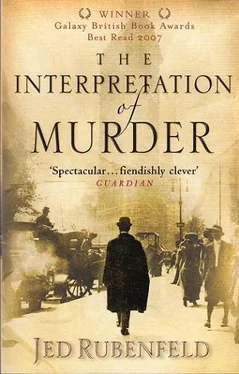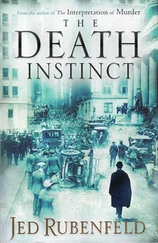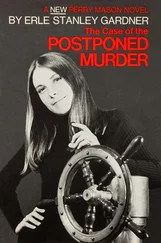Jed Rubenfeld - The Interpretation of Murder
Здесь есть возможность читать онлайн «Jed Rubenfeld - The Interpretation of Murder» весь текст электронной книги совершенно бесплатно (целиком полную версию без сокращений). В некоторых случаях можно слушать аудио, скачать через торрент в формате fb2 и присутствует краткое содержание. Жанр: Исторические приключения, на английском языке. Описание произведения, (предисловие) а так же отзывы посетителей доступны на портале библиотеки ЛибКат.
- Название:The Interpretation of Murder
- Автор:
- Жанр:
- Год:неизвестен
- ISBN:нет данных
- Рейтинг книги:5 / 5. Голосов: 1
-
Избранное:Добавить в избранное
- Отзывы:
-
Ваша оценка:
- 100
- 1
- 2
- 3
- 4
- 5
The Interpretation of Murder: краткое содержание, описание и аннотация
Предлагаем к чтению аннотацию, описание, краткое содержание или предисловие (зависит от того, что написал сам автор книги «The Interpretation of Murder»). Если вы не нашли необходимую информацию о книге — напишите в комментариях, мы постараемся отыскать её.
The Interpretation of Murder — читать онлайн бесплатно полную книгу (весь текст) целиком
Ниже представлен текст книги, разбитый по страницам. Система сохранения места последней прочитанной страницы, позволяет с удобством читать онлайн бесплатно книгу «The Interpretation of Murder», без необходимости каждый раз заново искать на чём Вы остановились. Поставьте закладку, и сможете в любой момент перейти на страницу, на которой закончили чтение.
Интервал:
Закладка:
'We take it with us.' The trunk had two leather grips. Each man took hold of one. 'Don't forget to yell, Littlemore. Ready?'
'I guess.'
'One, two — three! Younger pulled the red handle. The ceiling panels opened at once, and two men, yelling for their lives, with a large black trunk in tow, shot up through an elevator shaft full of water as if fired from a cannon.
Chapter Twenty-two
The generous foyer of the Banwells' penthouse apartment in the Balmoral had a tiled marble floor, milky white with silver veins, in the center of which a rich, dark green inlay formed an interlocking GB. This GB supplied Mr George Banwell with inordinate satisfaction every time he saw it; he liked having his initials on everything he owned. Clara Banwell detested it. Once she dared to introduce into the foyer an expensive Oriental carpet, explaining to her husband that the marble was so highly polished their guests were in danger of slipping on it. The next day, the foyer was bare. Clara never saw her carpet again, nor had it ever been referred to since, either by herself or her husband.
At ten on Friday morning, a butler in this foyer received the Banwells' mail. One envelope bore Nora Acton's pretty curvilinear hand. The addressee was Mrs Clara Banwell. Unfortunately for Nora, George Banwell was still at home. Fortunately, it was the habit of Parker, the butler, to offer Mrs Banwell her mail first, and he did so that Friday morning. Unfortunately, Clara still had Nora's letter in her hand when Banwell entered the bedroom.
Clara, her back to the door, felt her husband's presence behind her. She turned to greet him, holding Nora's letter behind her back. 'George,' she said. 'You're still here.'
Banwell took in every inch of his wife. 'Use that on someone else,' he replied.
'That?'
'That innocent expression. I remember it from when you were on stage.'
'I thought you liked the way I looked on stage,' said Clara.
'I like it all right. But I know what it means.' George Banwell approached his wife, put his arms around her, and tore the letter out of her hands.
'Don't,' said Clara. 'George, it will only anger you.'
Reading another's mail provides one with the taste of violating two persons at once, the sender and the recipient. When Banwell saw that his wife's letter was from Nora, this taste became sweeter. The moment lost its sweetness, however, as he began taking in the letter's contents.
'She knows nothing,' said Clara.
Banwell kept reading, his features hardening.
'No one would believe her anyway, George.'
George Banwell held the letter out for his wife.
'Why?' Clara asked quietly, taking it.
'Why what?'
'Why does she hate you so?'
Dawn was breaking when Littlemore and I finally got back to the police car the detective had waiting for us a few blocks south of the Manhattan Bridge. The two of us had shot up through the elevator shaft and into the air a good ten feet before falling back into the water. We hadn't made it all the way up. We had to hang from the elevator cables, freezing and exhausted, until the water rose high enough to pull ourselves onto the pier. From there, we loaded the trunk in a rowboat — the same boat in which we had traveled to the pier the night before. Luckily, Littlemore's car was waiting at a dock about two blocks south; I don't think either of us could have rowed further. I had a feeling Littlemore had broken some rules in getting us the police car, but that was his business.
I told the detective that we had to telephone the Actons; not a moment could be lost. I had a terrible foreboding that something had happened there in the night. The detective drove us, soaking, to the station. I waited in the car while Littlemore limped in. He returned after a few minutes: all was quiet at the Acton house. Nora was fine.
From the police station, we went to Littlemore's apartment on Mulberry Street. There we put on dry clothes — the detective lent me an ill-fitting suit — and drank about a gallon of hot coffee each. We drove to the morgue. I suggested smashing the top of the locked trunk with a pickax, but Littlemore was determined to proceed by the book from this point forward. He sent a boy running for the locksmiths, and we waited, our hair still wet, pacing impatiently. Or rather I paced, having cleaned and bandaged my ankle. Littlemore sat on an operating table, resting his bad leg. The trunk lay at his feet. We were alone. Littlemore had hoped to find the coroner, whom I had met yesterday, but that gentleman was not in.
I ought to have left Littlemore. I should have checked in with Dr Freud and my other guests at the hotel. Today, Friday, was our last full day in New York. We would all leave for Worcester tomorrow evening. But I wanted to see the trunk opened. If the Riverford girl were inside, surely that would prove Banwell was her murderer, and Littlemore could finally arrest him.
'Say, Doc,' Littlemore called out, 'can you tell from a cadaver whether somebody was strangled to death?' The detective led me to the morgue's cold room. He found and uncovered the partially embalmed body of Miss Elsie Sigel. Littlemore had already told me what he knew of her.
'This girl wasn't strangled,' I said.
'That means Chong Sing is lying. How can you tell?'
'No edema in the neck,' I replied. 'And look at this little bone here; it's intact. Normally it breaks if someone is strangled to death. No evidence of any tracheal or esophageal trauma. Very unlikely. But it does look like asphyxiation.'
'What's the difference?'
'She died from lack of oxygen. But not from strangulation.'
Littlemore grimaced. 'You mean somebody locks her up in the trunk while she's still alive, and then she suffocates?'
'Looks like it,' I said. 'Strange. See her fingernails?'
'They look normal to me, Doc.'
'That's what's strange. They're smooth at the tips, undamaged.'
Littlemore got it at once. 'She never struggled,' he said. 'She never tried to get out.'
We looked at each other.
'Chloroform,' said the detective.
At that moment, there came a knock at the outer laboratory door. The locksmiths, Samuel and Isaac Friedlander, had arrived. With an instrument resembling oversized garden shears, they cut through the two padlocks on the hasps of the trunk. Littlemore had them sign an affidavit attesting to their actions and instructed them to wait so that they could further witness the contents. Taking a deep breath, he opened the lid.
There was no smell. A confused, densely packed assortment of waterlogged clothes, studded with jewelry, was all I saw at first. Then Littlemore pointed to a black matted mass of hair. 'There she is,' he said. 'This isn't going to be pretty.'
Donning a pair of gloves, Littlemore grasped the hair, lifted it up — and his hand came clean away with a fistful of sopping, tangled hair.
'He's cut her up,' said one of the Friedlanders.
'Cut her to pieces,' said the other.
'Geez,' said Littlemore, gritting his teeth and throwing the mass of hair onto the table. Then he snatched it back up. 'Wait a minute. This is a wig.'
The detective began emptying the contents of the trunk, one item after another, recording each object in an inventory and placing them into bags or other containers. In addition to the wig, there were several pairs of high-heeled shoes, a considerable collection of lingerie, a half dozen evening gowns, a trove of jewelry and toiletries, a mink stole, a lightweight lady's coat — but no lady.
'What the heck?' asked Littlemore, scratching his head. 'Where's the girl? There must have been another trunk. Doc, you must have missed the other trunk.'
I offered the detective my thoughts on that hypothesis.
Littlemore accompanied me into the savagely bright street. I asked the detective what he would do next. His plan, he said, was to scour the trunk and everything in it for some link to Banwell or to the murdered girl. Perhaps the Riverford family in Chicago could identify some of the girl's belongings. 'If I can put Elizabeth Riverford's name on just one of those necklaces, I got him,' said the detective. 'I mean, who but Banwell could have put her things in a trunk under the Manhattan Bridge the day after she was murdered? And why would he do it if he wasn't the murderer?'
Читать дальшеИнтервал:
Закладка:
Похожие книги на «The Interpretation of Murder»
Представляем Вашему вниманию похожие книги на «The Interpretation of Murder» списком для выбора. Мы отобрали схожую по названию и смыслу литературу в надежде предоставить читателям больше вариантов отыскать новые, интересные, ещё непрочитанные произведения.
Обсуждение, отзывы о книге «The Interpretation of Murder» и просто собственные мнения читателей. Оставьте ваши комментарии, напишите, что Вы думаете о произведении, его смысле или главных героях. Укажите что конкретно понравилось, а что нет, и почему Вы так считаете.












